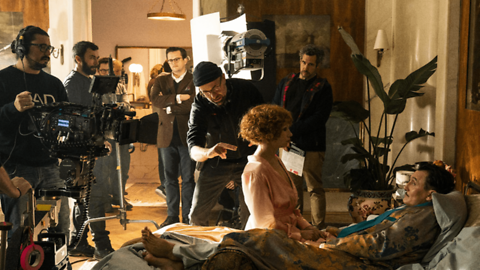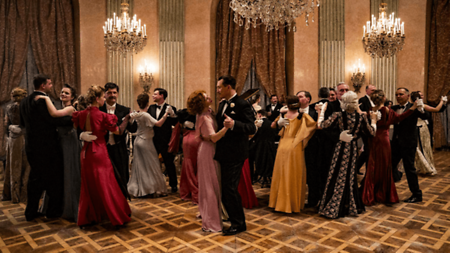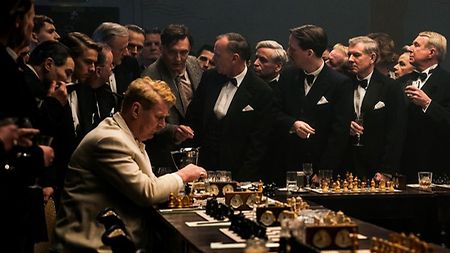Describe the look of the DNAs and why you chose them for “Schachnovelle.”
Each of these lenses has its own different character, and getting to know them is what you have to earn. In advance, I spent a long time looking at our lens sets and testing them. Understanding when and how a lens is showing its advantage is a lengthy process, but if you get through it, you will be rewarded with a beautiful picture. Each lens acts differently. You have to subordinate yourself to these lenses, otherwise you gamble away their quality. The way in which the sharpness turns out and how the highlights react is very independent. In the lower exposure space, some of the lenses make very strange contrast shifts. You have to work with them and also serve them. But you will be rewarded.
You worked with ARRI Rental to detune the lenses. What was that process like, and what support did you get?
The support from ARRI Rental is always very comprehensive and great. We were able to test all the lenses more precisely and after many tests we fulfilled my wishes for focus and contrast performance. In the end we translated the DNA of “Schachnovelle” into the DNA of our lenses, which was a unique experience for me. In fact, I didn't use more than four lenses. We didn't have any more on set either.
Have you been working with ARRI Rental for a long time?
Yes, for many years. I think my first intensive project with ARRI Rental was “Das finstere Tal.” I just like to work with people I know, and the trust increases with every project. You no longer have to explain everything from scratch, instead you can concentrate on the new tasks to be solved. Every project is different and each time I want to experiment for as long as possible, and push the limits. For that you need a good partner who understands the process and goes along with it. That’s ARRI Rental, for sure.
What advice would you give to young cinematographers starting out?
My motto is always: be brave. Never do something just to please or impress someone else. Creative work always has to come from you, first and foremost. Your own vision is important. Only then can you adapt and compromise with directors or the production. But once you lose heart, it's like losing part of your own creative power. This makes the visual quality of films weaker and more interchangeable. And it’s important to remember that it never has to be big strides; it’s about the small details. Barely noticeable ideas can be enough to strengthen confidence in your own creative power because above all, you have to trust yourself in order to create images.
How does it feel to walk onto set for the first setup on the first day?
I'm always excited before the first day of a film shoot. No matter what the project. It's that fear of not finding the right picture, not finding the right workflow. But I also love that moment after the first take, the realization that this is how we’re going to do it for the next six weeks. For me this is filmmaking, and I hope to never lose this fear.


